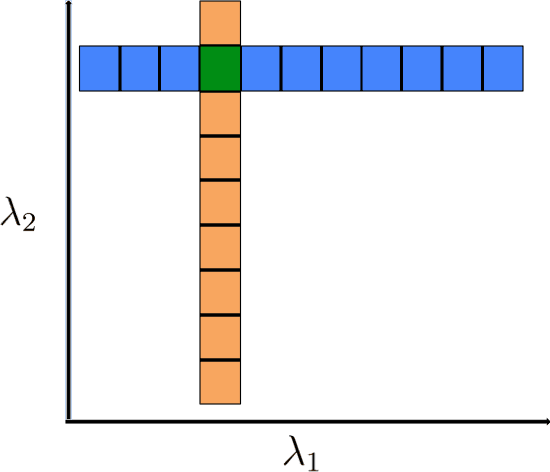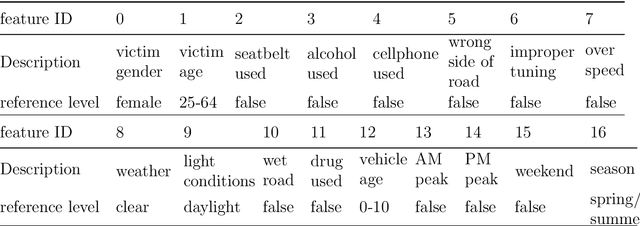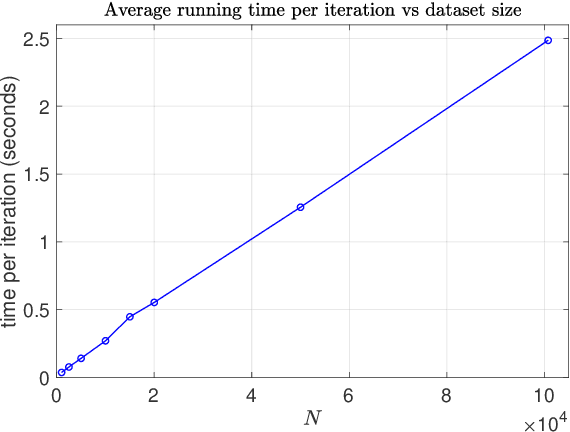Convex Latent Effect Logit Model via Sparse and Low-rank Decomposition
Paper and Code
Aug 22, 2021



In this paper, we propose a convex formulation for learning logistic regression model (logit) with latent heterogeneous effect on sub-population. In transportation, logistic regression and its variants are often interpreted as discrete choice models under utility theory (McFadden, 2001). Two prominent applications of logit models in the transportation domain are traffic accident analysis and choice modeling. In these applications, researchers often want to understand and capture the individual variation under the same accident or choice scenario. The mixed effect logistic regression (mixed logit) is a popular model employed by transportation researchers. To estimate the distribution of mixed logit parameters, a non-convex optimization problem with nested high-dimensional integrals needs to be solved. Simulation-based optimization is typically applied to solve the mixed logit parameter estimation problem. Despite its popularity, the mixed logit approach for learning individual heterogeneity has several downsides. First, the parametric form of the distribution requires domain knowledge and assumptions imposed by users, although this issue can be addressed to some extent by using a non-parametric approach. Second, the optimization problems arise from parameter estimation for mixed logit and the non-parametric extensions are non-convex, which leads to unstable model interpretation. Third, the simulation size in simulation-assisted estimation lacks finite-sample theoretical guarantees and is chosen somewhat arbitrarily in practice. To address these issues, we are motivated to develop a formulation that models the latent individual heterogeneity while preserving convexity, and avoids the need for simulation-based approximation. Our setup is based on decomposing the parameters into a sparse homogeneous component in the population and low-rank heterogeneous parts for each individual.
 Add to Chrome
Add to Chrome Add to Firefox
Add to Firefox Add to Edge
Add to Edge